Sweet 16: Intel Capital Invests $62 Million In These Startups

Welcome To The Family
Intel Capital is rounding out the year having spent $344 million on companies with plans to spend about another $10 million by year-end.
At the corporate venture capital firm's annual Global Summit, which recently wrapped its two-day run in Huntington Beach, Calif., news came that the company spent $62 million on 16 new startups ranging from the microprocessor and mobility worlds to big data and wireless.
"It's a very broad range, [a] very big area and we're investing in the entire continuum there," said Intel Capital President and Intel Executive Vice President Arvind Sodhani.
The startups join a portfolio that totals nearly 400 companies, with Intel Capital investing at a rate of roughly 55 companies annually.
The portfolio so far this year has seen three IPOs and 19 M&As, down slightly from the 30 to 35 M&A deals it typically sees.
Click through to see which companies managed to nab the attention of Intel Capital decision-makers.
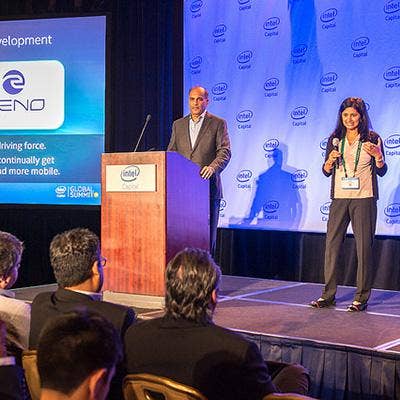
NetSpeed Systems
Headquarters: San Jose, Calif.
Co-Founder/CEO: Sundari Mitra
NetSpeed is serial entrepreneur Sundari Mitra's second startup.
NetSpeed makes a system-on-chip platform and on-chip network solutions for SoC architects.
"As I play back on my 25-year journey in the semiconductor industry, I feel that everything has changed about SoCs. [There is] a lot more performance. They are like power packs," she said. "At the same time, some things have not changed. … NetSpeed is about creating more powerful SoCs by coming up with a radically different technology of putting active networks on silicon."
The company has more than 50 patents under its belt.
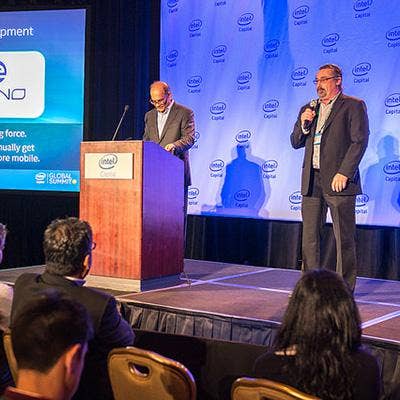
Reno Sub-Systems
Headquarters: Nova Scotia
Co-Founder/CEO: David Ferran
Reno's subsystems helps semiconductor manufacturers with the integrated circuit fabrication process.
The investment from Intel Capital was the company's first venture capital round and included Innovacorp and other investors.
"We at Reno are focused on the development of radically better technologies in support of the semiconductor industry's move to next-generation devices," Ferran said. "We create, measure and control process power, pressure and gas flows."
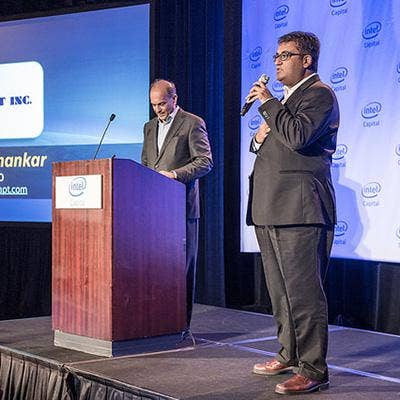
AnDAPT
Headquarters: Santa Clara, Calif.
Founder/CEO: Kapil Shankur
AnDAPT's solution is aimed at helping customers build on-demand, mixed signal application specific standard products [ASSPs].
"At AnDAPT we are developing a whole new genre of adaptive analog and digital solutions," CEO Kapil Shankur said. "This technology will allow our customers to make on-demand, custom power management solutions primarily for the enterprise market."
Its technology also allows customers to make signal-chain integration and sensor system interface solutions for the Internet of Things market.
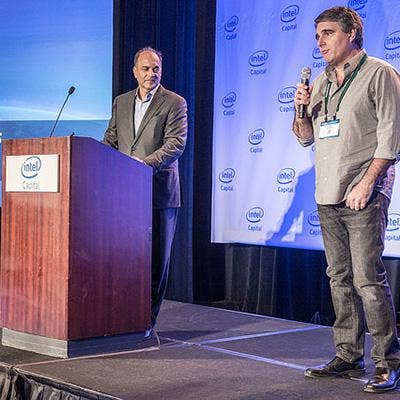
Audyssey Laboratories
Headquarters: Los Angeles.
Founder/CEO/CTO: Chris Kyriakakis
Audyssey's technology is aimed at improving audio in a broad spectrum of products -- from TVs and cars to home theater products and mobile platforms.
Company founder Chris Kyriakakis is a professor of audio and psych acoustics at USC and said the idea that increasing bit rate will improve sound quality is a misconception his company aims to disprove.
"[Increasing bit rate] is the equivalent of sitting in a crappy car on the freeway and saying if only the freeway was a little wider, I could get there faster," he said. "No, it doesn’t work that way."
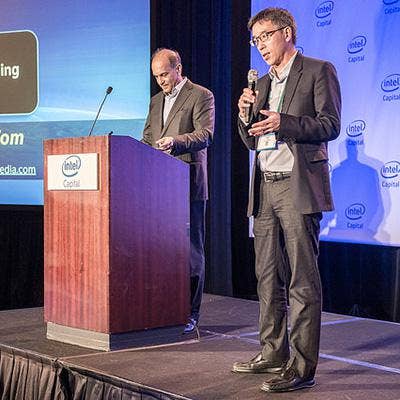
Incoming Media
Headquarters: Santa Clara, Calif.
CEO: Adam Tom
Incoming Media uses data analytics on its mobile video platform to provide custom content.
The company is a spin-off of Australia-based research lab NICTA.
"We use predictive analytics to adaptively deliver content to mobile devices to create instant, intuitive, uninterrupted experiences every time, leading to a 3X increase in mobile video engagement," CEO Adam Tom said.
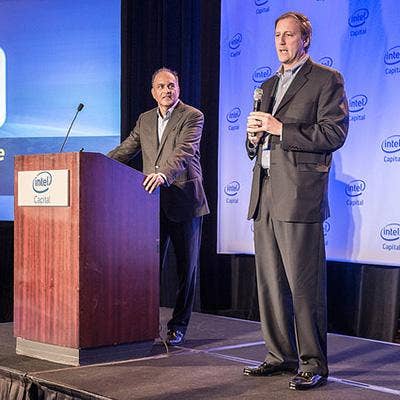
INRIX
Headquarters: Kirkland, Wash.
President/CEO: Bryan Mistele
INRIX's solutions provide transportation and information analytics for automobiles and smarter cities.
The company last week said it is working with Intel on next-generation smart cities applications.
"[Intel and INRIX] both believe that real-time data and predictive analytics is as important to transportation in this century as steel and concrete were in the last century," INRIX President and CEO Bryan Mistele said.
The two companies demoed at the White House an application build for the city of San Jose that helps manage air quality and traffic congestion.
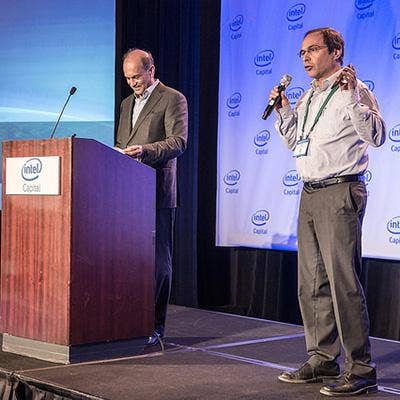
Screenovate Technologies
Headquarters: Israel
Founder/CEO: Joshua Glazer
Screenovate, in a nutshell, connects screens.
The company's software is aimed at optimizing smartphones and tablets so that something like a presentation or game can be wirelessly transferred to a TV or larger screen.
"We rarely do heavyweight productivity with [smartphones]," founder and CEO Joshua Glazer said, and that's something his company wants to change.
Screenovate's funding marks the second time Glazer is working with Intel Capital.
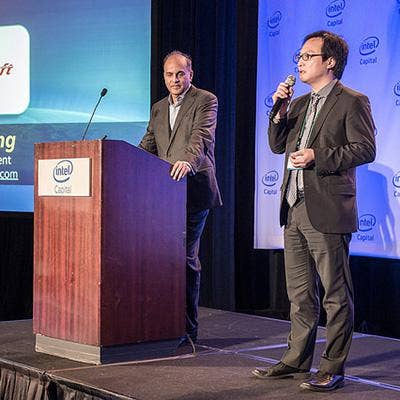
Thundersoft
Headquarters: Beijing
CEO/President: Larry Geng
Thundersoft works with OEMs to provide them with technologies and solutions to help them more quickly bring their products to market.
It focuses on developing applications and other services for Android, Windows Phone and Firefox operating systems on smartphones, tablets and smart TVs, although CEO and President Larry Geng said much of the business is predominantly coming from smartphones at this time.
The company is based in Beijing with additional offices in Tokyo, Taiwan, Korea and the U.S.
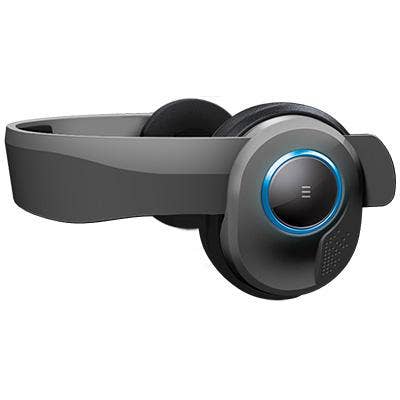
Avegant
Headquarters: Redwood City, Calif.
CEO: Joerg Tewes
"We're bringing video to headphones," said Avegant CEO Joerg Tewes.
The company is developing a video display, called Glyph, that's embedded into the headband of a device to watch videos.
It has already raised capital via a Kickstarter campaign this year that brought in more than $1 million.
The company is now completing product development, according to Tewes, and plans to bring Glyph to market next year.

Braigo Labs
Headquarters: Palo Alto, Calif.
Founder: Shubham Banerjee
This company got a lot of attention coming out of the Intel Capital Global Summit given its founder is 13 years old, making him the youngest recipient of venture funding from Intel Capital.
Shubham Banerjee developed a Lego Braille printer that sells for $350, just a fraction of the average $2,000 cost of Braille printers on the market today.
"Our company is basically trying to reduce the cost of a normal Braille printer, which is $2,000 onwards and try to get a goal of $500 or less," Banerjee said.

Eyefluence
Headquarters: Reno, Nev.
Founder/Chair/CEO: Jim Marggraff
Eyefluence's technology can assess gaze direction and eye motion in wearables.
Eyefluence is the sixth company CEO Jim Marggraff has founded or co-founded.
The company's technology seeks to take wearables to the next level by allowing action to occur through movement of the eyes as opposed to requiring hand or head movement, which Marggraff called "incomplete."
"What you should be able to do is simply look at a display mount in front of your eyes and use your eyes to do anything you can do with your finger on a smartphone with one eye, but faster," he said.

Gigya
Headquarters: Mountain View, Calif.
CEO: Patrick Salyer
Intel Capital led Gigya's recent funding round, which totaled $35 million, and included Common Fund Capital, Vintage Investment Partners and Adobe among others.
Gigya has now raised a total of $104 million for its cloud platform that helps companies identify anonymous visitors to their site to turn them into customers.
"If you're a business today, you want to know who your customers are, which is critical to building relationships," CEO Patrick Salyer said. "You've actually relied on doing it in kind of a sneaky way, kind of spying on your consumers. You've actually gone out and many of these businesses bought data on their consumers, going to data brokers."
That data is oftentimes inaccurate, Salyer said, and so Gigya lets customers choose what information they share so companies get reliable data.
The company has 700 enterprise customers, according to Salyer.
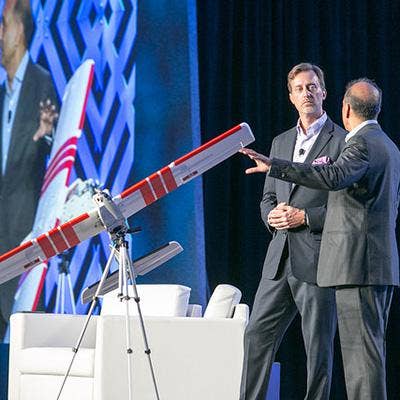
PrecisionHawk
Headquarters: Raleigh, N.C.
Co-Founder/President: Ernest Earon
PrecisionHawk makes drones that gather aerial data using cloud-based software.
Ernest Earon used the example of an insurance agent responding to a claim of damages from a hailstorm at a farm. That agent could dispatch a drone from a plane, and the drone would survey the damaged area and report the amount for the assessment.

Prelert
Headquarters: Framingham, Mass.
CEO: Mark Jaffe
Prelert addresses security breaches by helping companies with early detection using predictive analytics.
The company said more than 100 enterprise customers are using its applications.
CEO Mark Jaffe said the company uses "super advanced data analytics in the form of unsupervised machine-learning to be able to identify and detect those potentially disastrous operational issues early."
Jaffe is a former McAfee executive, having served as the company's worldwide vice president of firewall and behavioral analysis sales.

PilotTV
Headquarters: Taiwan
Founder/Chair: Andrew Song
PilotTV designs digital signage that's largely used by retailers.
The company operates more than 6,000 screens used by fast-food and drugstore chains among other types of retailers and is also used at rapid-transit stations.
"We think signage in retail is one of the best ways to capture big data for use in retail behavior," founder Andrew Song said.
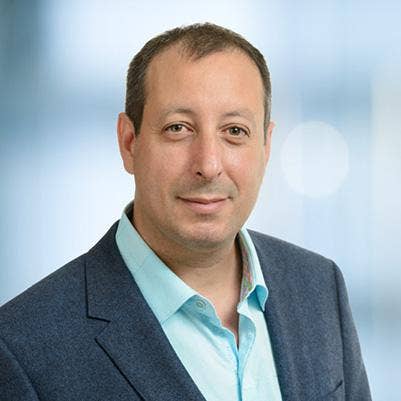
Stratoscale
Headquarters: Israel
Founder/CEO: Ariel Maislos
Stratoscale was founded by serial entrepreneur Ariel Maislos.
Other companies he's founded include Passave, acquired by PMC-Sierra in 2006, and Pudding Media, which Apple bought in 2012.
"This is actually my third opportunity taking money from Intel," Maislos said.
Stratoscale is developing an operating system for the data center that looks to address challenges related to scale and cost, according to Maislos.